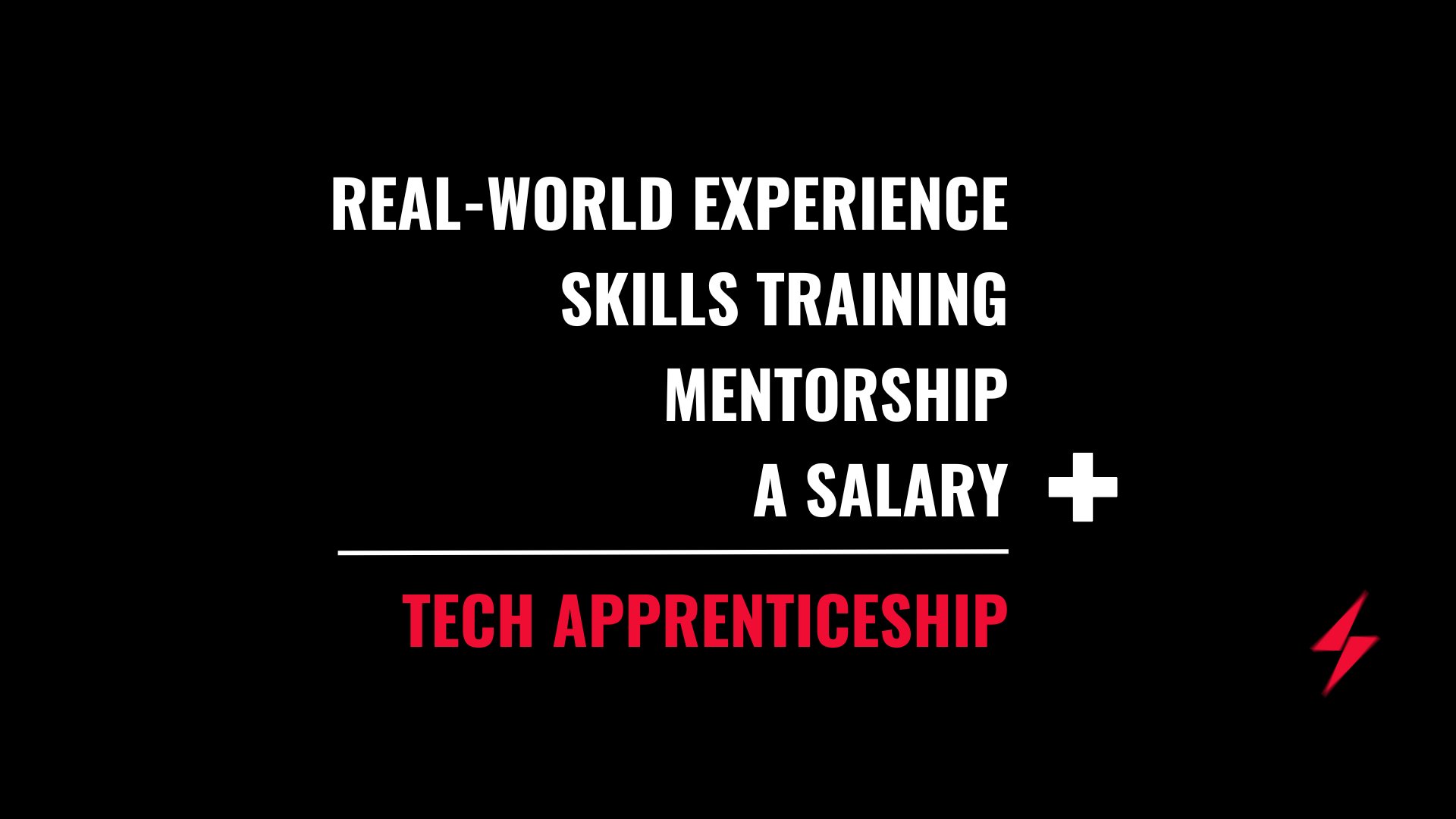The problem
Does it feel like there aren’t enough good developers around to hire? Don’t worry, most CIOs feel the same. Roles sit vacant for too long and teams grow slowly while demands from the business grow quickly.
Whilst TAFE has helped make a dent in the lower-skill areas like desktop support, they’re not addressing the deeper needs of corporate software development. To date, this has been the sole remit of universities with Computer Science and Business Computing degrees.
So how might we fix a skills shortage?
We could start at the top end of the funnel and rustle up some ambassadors to visit high schools across the country, encouraging more bright sparks to apply for a Computer Science degree. They won’t be job-ready on graduation (we’ve been shocked by the number of graduates who haven’t even been taught JavaScript), but they will learn a lot of fascinating fundamentals. If we inspire a wave of new enrolments this year, we’d find a large new cohort of new grads five years from now in…2028.
A worthy goal, but most of us can’t wait that long.
What then of boot camps, the express lane of learning to code? After just 24 weeks, a boot camp promises job-ready skills for coding Python, JavaScript, and more. And yet, boot camp grads also struggle to find work until they have meaningful work experience. Be honest — would you hire an inexperienced boot camp grad?
And there lies the rub.
Until graduates of any course have a chance to apply the theory, to work in a real team, and to experience the reality of business problems — they just aren’t job-ready.
That’s where the education system is letting them down — and that’s where an Apprenticeship program creates a new path. A distinctive feature of an Apprenticeship is applying skills to real problems, not just academic ones. It’s a feature that employers and students are crying out for.
THE UNDER-APPRECIATED ROLE OF MENTORSHIP
A mentor isn’t just someone to look up to. A mentor is a navigator of nuance. They can explain when to follow the rules and when to innovate, how to be productive in a team rather than merely as an individual, and how to exploit every last shortcut (especially the ones that educators seek to ban).
With a new pathway, achieving diversity becomes simpler
It takes a certain type to start university (let alone graduate). Firstly, they need to be in the top 10% in a broad academic sense, regardless of whether they’ve already shown high aptitude for software development specifically. Secondly, they need to be willing to spend 40+ hours a week on an activity that doesn’t bring in any income. HECS helps with the cost of university, but not the living expenses, so still too many people have turned off the idea of university for purely economic reasons.
We believe that the Apprenticeship model of paying the learner solves many of the diversity challenges that face tech. It allows greater participation from groups that are historically under-represented, including Indigenous Australians and the socio-economically challenged.
Our Vision of An Apprenticeship: The Straw Man
(Tell us what you think.)
We envision taking on high school graduates in 2023, who will join our team at ThunderLabs as Tech Apprentices. Their Apprenticeship is about providing the four things they need to succeed: skills training, real-world experience, mentoring, and a salary.
Skills Training will firstly come from participating in a credible boot camp covering front- and back-end developer skills. From there, the Apprentice will choose their own adventure, taking further courses in areas that interest them. Passion precludes success, so we’ll support their learning, whether that’s about becoming a Low-Code wizard, going deep on a particular area, or even ultimately enrolling in part-time university.
Real-World Experience will come from working on actual projects (not academic ones). We’re lucky enough to be creating software for organisations like Sydney University, Cochlear, eftpos, and IAG, so we have a large pipeline of projects where a small piece can be done by an Apprentice (under close supervision and lots of QA).
Mentorship will come from pairing Apprentices with Senior Developers. Sitting side-by-side (or the closest remote-work equivalent), the Senior will guide, encourage, and problem-solve with the Apprentice. The Senior takes ultimate responsibility for any work produced, so also acts as QA and revisionist as necessary — allowing great work outcomes and great learning outcomes at the same time.
A Salary is the final piece of the puzzle. Getting paid to learn makes this pathway accessible to so many more people from under-represented groups in tech. We intend to cover the cost of salary (and skills training) by having the Apprentice work on real-world client projects.
Objection, your honour.
We sometimes hear an objection to the Apprenticeship model: That it doesn’t go deep enough. People exclaim, “But shouldn’t all developers deeply understand how their systems work?” Well, we may as well say all modern computer engineers should be able to interpret machine code on sight. The fact is that there’s a layer of abstraction below which deep knowledge is unnecessary for many developer roles.
In many ways, grads from university Computer Science degrees learn as much about web/mobile development languages as boot camp graduates do. Both spend 12–24 weeks on these topics. The difference is that Computer Science graduates will also cover so many additional topics, ranging from the deep maths that drive the functioning of silicon chips, to understanding the cabling that goes into a network build.
So if someone wishes to work in firmware or build the next VR gaming engine or work at the cutting edge of AI, then clearly an Apprenticeship is not the right path. (Off to study Computer Science for you!)
But if they seek to meaningfully contribute to the software that now runs every business on the planet, then an Apprenticeship is a new way in.
So where to next?
At ThunderLabs we’re planning on taking our first Apprentices on in 2023. But first things first — we’re connecting with the smart people in our network (that’s you, dear reader) to gather your input. How would you approach an Apprenticeship?
If you have ideas, drop a note to Adam or Andrew. We’re keen to hear from you.
The big questions
- What makes for meaningful work experiences?
- How does an Apprenticeship program become sustainable?
- What would need to be true for your business to engage an apprentice?
- What skills training programs do you most respect?
- How can you help?

Adam Long
Managing Director and Founder
Also known as The Ethical CEO, Adam is a strategist for the fastest-growing companies, advising the likes of ANZ, Humanitix and KPMG. Adam has built several companies of his own, including Conscious Step (socks for charity), Step Change (strategy consultancy) and now ThunderLabs.

Andrew Walker
CTO and Founder
The Impatient Futurist of the technology world, Andrew is on speed dial for the likes of IAG, Walmart and NewsCorp. Andrew has built and sold businesses (making 11 people millionaires in the process), launched products, written books, and taught others to bring the future forward too.


